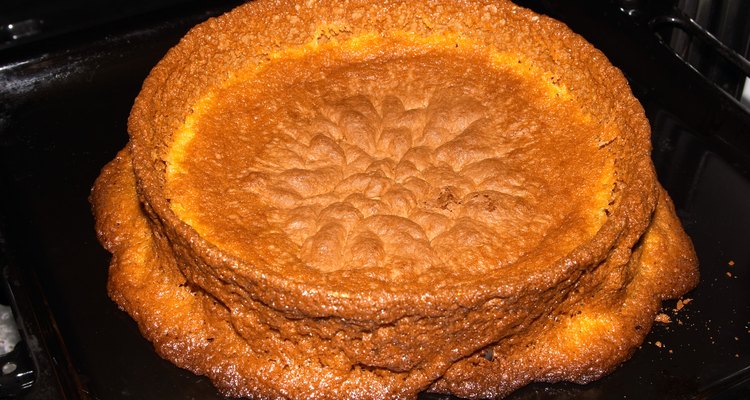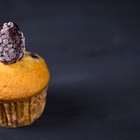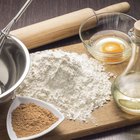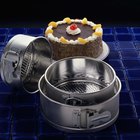
Marco Regalia/Hemera/Getty Images
For novices, baking can often be a frustrating exercise. Far too often you follow a recipe precisely, only to have the resulting cake prove to be a resounding dud. There are many reasons for cakes not to rise, and with time and practice you'll learn most of them. In practice, they boil down to a few basic mistakes.
Trusting the Recipe
The most fundamental mistake made by most novices, and some bakers who should know better, is trusting the recipe. All too often recipes are written or transcribed under deadline pressure, and consequently errors find their way into print. Internet recipes are especially trouble-prone. Before baking a recipe for the first time, it's helpful to compare it with others of the same type. If the ratios of eggs to fat, sugar to flour or liquids to flour are consistent in three recipes but significantly different in a fourth, the fourth is probably in error.
Inaccurate Measuring
Even when the recipe lists all the ingredients in their correct proportions, it's easy to make mistakes while measuring. Professionals usually measure and set out all their ingredients before starting to minimize the risk of errors. Measure carefully in good-quality measuring cups and spoons, following the recipe's guidance if it gives you specific instructions. Your grandmother may have just estimated ingredient quantities by eye, but you probably don't have her experience. A large number of cake failures are due to poor measuring. This is why professional recipes are generally measured in weight, which allows for better accuracy.
Specific Errors
Not creaming your butter and sugar long enough can make your cake dense, by not incorporating enough air into the butter. Too little liquid in the batter makes it dense and heavy, as does too much flour. If your baking powder is old, or if you don't use enough, there may not be enough leavening to rise the cake. If you're making a sponge cake, even a small amount of oil or yolk in the whites keeps them from foaming as they should. You also need to fold the whites gently into the batter to avoid losing the air.
Problems in Baking
If your cake fails to rise adequately and sets with a crater in the middle, your oven may not have been hot enough. Check it periodically with an oven thermometer to be sure it's accurate. A sudden vibration can make your cake fall if it has risen but not yet become firm. If you're baking a sponge cake or angel food cake, it'si mportant not to grease the sides of the pan. Your cake needs to cling to the sides. Otherwise it won't be able to support its own weight until the baking is finished.
Related Articles

What Causes Cupcakes to Fall?
What Causes My Cake to Fall When ...

How to Stop Cakes From Dropping
Should Cake Flour Be Sifted Before ...

How to Keep Cake Edges From Hardening ...

Does High Altitude Make a Difference ...

What Causes Bubbles on Top of Cakes ...

What Kind of Flour to Use for Cupcakes?
How to Use Unsweetened Applesauce in ...

The Best Cake and Cupcake Tools and ...

What Are the Causes of Large Holes in a ...

Why Does Bread Drop in the Middle When ...
Does Humidity Affect Baking Times?

What Causes Cupcakes to Be Dry?
How to Make Banana Nut Cake Out of a ...

How to Substitute Margarine for Butter ...

The Differences in Baking with Jumbo & ...

Can I Bake Cupcakes in Teacups?

What Causes Dry & Hard Muffins?

A Baking Mistake of Not Separating the ...
References
- "On Food and Cooking: The Science and Lore of the Kitchen"; Harold McGee; 2004
- "The Professional Pastry Chef"; Bo Friberg; 2002
- Joy of Baking; Troubleshooting Butter Cakes; Stephanie Jaworski
Writer Bio
Fred Decker is a trained chef and prolific freelance writer. In previous careers, he sold insurance and mutual funds, and was a longtime retailer. He was educated at Memorial University of Newfoundland and the Northern Alberta Institute of Technology. His articles have appeared on numerous home and garden sites including GoneOutdoors, TheNest and eHow.
Photo Credits
Marco Regalia/Hemera/Getty Images